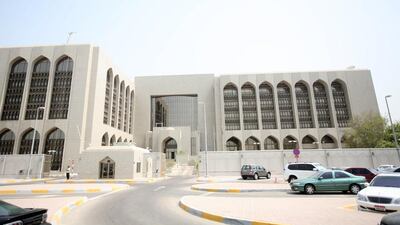A new law issued by president Sheikh Khalifa bin Zayed Al Nahyan raises the capital of the central bank to Dh20 billion, establishing a general reserve of up to four times the paid-up capital.
"The law also sets three major objectives for the Central Bank, of which the most important is to protect stability of the financial system in the state, ensure prudent management of CBUAE foreign reserves and maintain stability of the national currency ... to achieve balanced growth of the national economy," said Sheikh Hamdan bin Rashid, deputy ruler of Dubai and minister of finance.
The law does not apply to the financial free zones and the financial institutions regulated by the authorities of those zones.
The latest decree comes amid efforts by the UAE government to undertake a number of reforms to help strengthen the economy, diversify its income away from oil and attract investments.
_____________
Read more:
Higher non-oil GDP prompts UAE Central Bank to increase 2018 growth forecast
_____________
“This new legislation will strengthen the UAE's monetary policy architecture and assure that the UAE’s dirham peg to the US dollar is well anchored as a stabilisation mechanism for inflation and output growth,” said Ehsan Khoman, head of MENA Research and strategy at MUFG bank. “In conjunction, the new law will act as an instrument for enhancing regulatory frameworks and will bolster the supervision of credit conditions to ensure best practice operations at the Central Bank of the UAE.”
The new law also will help improve “the regulatory frameworks for monitoring the status of credit in UAE," according to Sheikh Hamdan.
The government is keen to maintain credit growth and improve its disbursement banks in the UAE. In 2014, it rolled out the Al Etihad Credit Bureau, which is designed to help keep credit growth from overstretching and to prevent consumers and corporations from over-leveraging themselves.
“The new law strengthens CBUAE’s enforcement powers to impose a broad range of administrative, financial sanctions and penalties on licensed financial institutions that are in violation of the provisions of this law,” said Mubarak Al Mansoori, governor of the Central Bank of the UAE. “For the first time, the law sets out clear provisions governing the financial infrastructure of the UAE."

